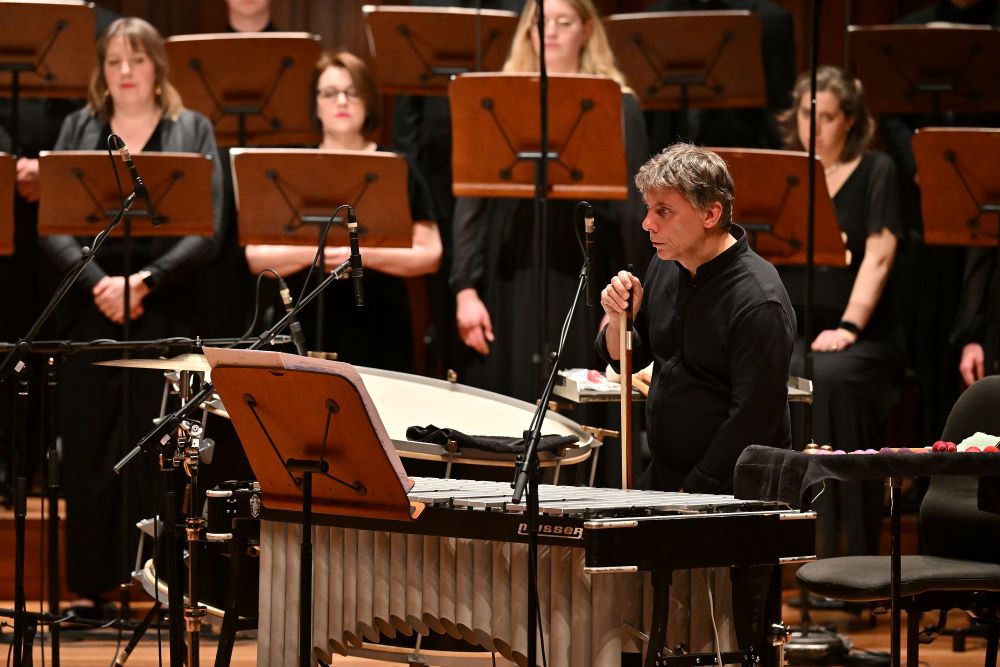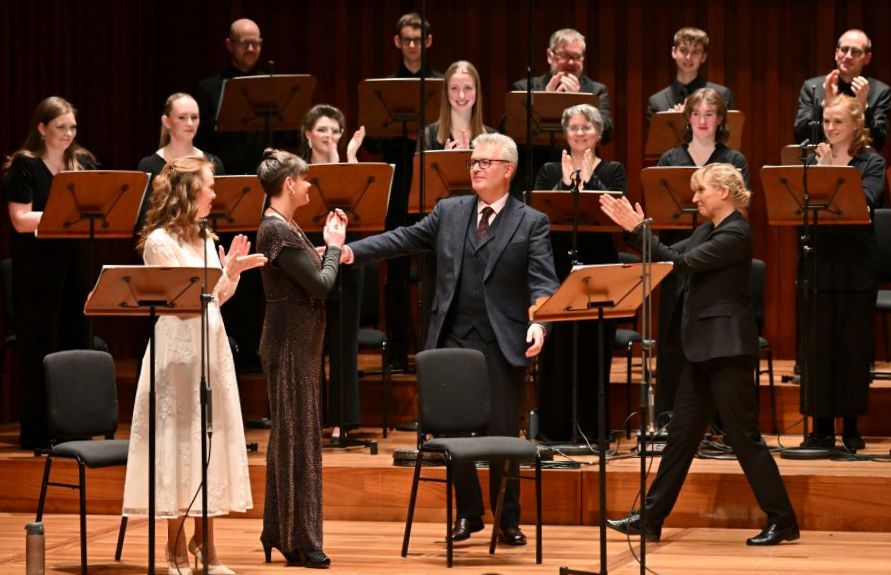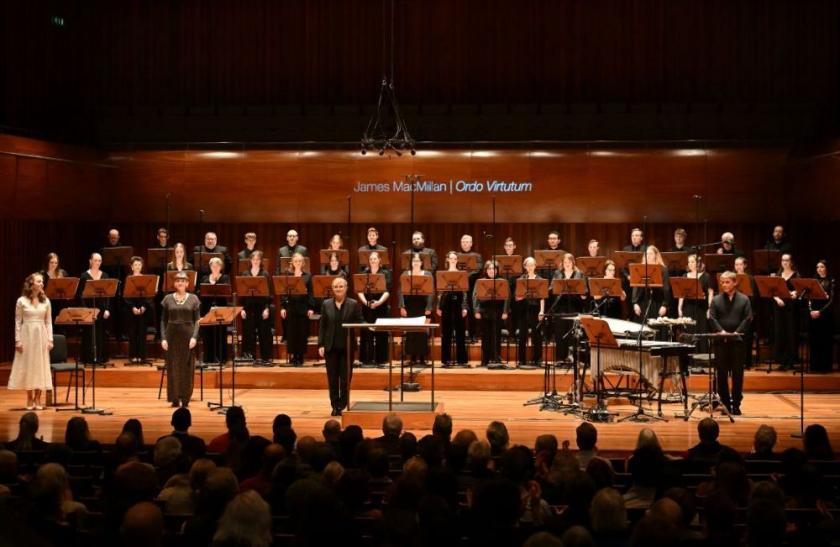Does any living composer write better for choirs, or more demandingly when circumstances allow, than James MacMillan? Admirable as it is to have extant words and music for a music-drama, morality play, call it what you will, by medieval pioneer Hildegard of Bingen, her imagining of a soul torn between virtues and Satan is inevitably one-dimensional. MacMillan finds variety and surprises in response to her text at ever turn of this 80-minute epic.
Hildegard’s musical language in c.1150 was necessarily monophonic; experiencing the full hour can be a fine meditative experience. MacMillan's choral writing offers true drama, and typically sensitive setting of the Latin text. Though he gives the devil none of the best tunes – the role is a spoken one and of minimal interest, however well delivered by Charles Gibbs – the composer refuses to let the Virtues be white versus black, and runs the colours of the rainbow, and a full dynamic range, for them.  Just when you think the individual preachings of Humility and Charity in Part Two are getting a bit too vanilla, bold rhythms and dynamism take over. Part Three, when the battle is for the fugitive, not against the devil, has a blinding conviction, with striking vocal glissandi from the Soul – a truly operatic performance from BBC Singer Emma Tring – and the Virtues. The binding of the serpent notches the tension up further still, and the contributions throughout of Andrew Barclay (pictured above) on crotales, vibraphone, suspended cymbal, tom-tom and stunningly various effects on the bass drum heighten both the drama and the ritual.
Just when you think the individual preachings of Humility and Charity in Part Two are getting a bit too vanilla, bold rhythms and dynamism take over. Part Three, when the battle is for the fugitive, not against the devil, has a blinding conviction, with striking vocal glissandi from the Soul – a truly operatic performance from BBC Singer Emma Tring – and the Virtues. The binding of the serpent notches the tension up further still, and the contributions throughout of Andrew Barclay (pictured above) on crotales, vibraphone, suspended cymbal, tom-tom and stunningly various effects on the bass drum heighten both the drama and the ritual.
This is, of course, the ultimate triumph for Sofi Jeannin and the BBC Singers in a 100th anniversary year we weren’t at one stage sure they were going to survive to see (Ordo Virtutum was composer in 2020-1 for Leipzig’s Mitteldeutscher Rundfunk Choir, but not premiered by them until January of last year; this is its first UK performance): the many solos alongside Tring and the more choral-soprano purity of Rebecca Lea were all superbly taken, and the great blazes, enriched by an essential ongoing collaboration with National Youth Voices, dazzle and disorientate. 
- To be broadcast on BBC Radio 3 on 20 February at 7.30pm
- More classical music reviews on theartsdesk













Add comment